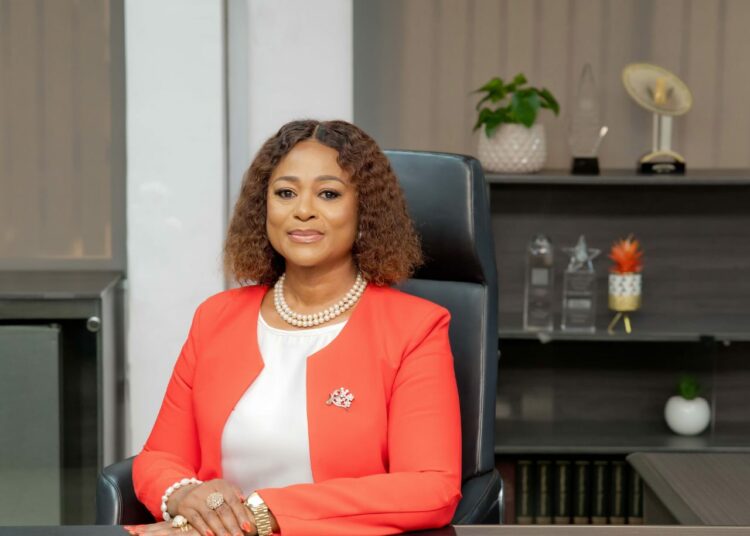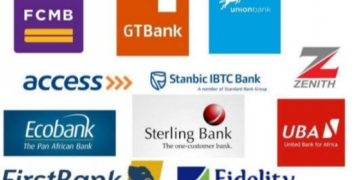World-class, innovation-led, and technology-driven knowledge institution, FITC has released a list of Top 50 Women in Tech, in honour of women who are leading the way, and spearheading technology drive and innovative impact in their industries.
The inaugural FITC Top Women in Tech list, which recognised women in diverse sectors, was unveiled at the FITC International Women’s Day event themed: “DigitALL: Innovation and Technology as Enablers for Gender Equality,” which held recently in Lagos, Nigeria.
The top 50 female tech leaders featured are drawn from diverse sectors, representing fintech, banking, logistics, retail, travel, healthcare, media, and other key sectors.
According to the managing director/CEO of FITC, Chizor Malize, these women were painstakingly selected focusing on critical factors such as innovation, leadership, and societal impact, with a notable focus on technology for good.
Speaking on the list, Malize extolled the contributions of the female tech leaders “they are distinguished for leading transformational change in their various organisations and sectors. They have leveraged technology to drive innovation, solution design, and customer experience, putting technology at the center of their operations. They have demonstrated tremendous capacity through their contributions to corporate growth and societal development leveraging technology and innovation.
“The FITC 50 Women in Tech list features three generations of women who are leading positions in business and corporations, and entrepreneurs who have set up impactful businesses bringing solutions to societal problems through their vision. In recognising their giant stride, we are confident that their stories would inspire and birth a pipeline of new entrants and a next generation of female technology leaders,” Malize said.
The list which was intentionally unranked, includes movers and shakers such as Funke Opeke, Founder/CEO, Main One Cable; Nkemdilim Begho, MD/CEO, Future Software Resources Ltd.; Juliet Ehimuan, Country Director, Google; Amy Jaiyesimi, CEO, LADPOL; Yemi Keri, Chief Executive Officer, Heckerbella Limited; Kofo Akinkugbe, Founder CEO, Secure ID; Foluso Gbadamosi, Executive Director, Junior Achievement Nigeria; Wunmi Faiga, Chief Information Security Officer, NIBSS; Olatomiwa Williams, Country Manager, Microsoft; Favour Femi Oyewole, Chief Information Security Officer, Access Bank; Dr. Yinka David West, Director, (SIDFS), Associate Dean & Professor of Information Systems, Lagos Business School; Temie Giwa Tubosun, Founder/CEO, LifeBank; Vanessa C. Malize, Technical Program Manager, Expedia Group; Confidence Staveley, Founder & Executive Director, Cybersafe Foundation among others.
Malize noted that these women are rewriting history, closing inequalities, pioneering new avenues of wealth creation, and, in turn, lifting others up with them.
The hybrid event was a gathering of thought leaders, technology experts, female leaders, and representatives from several organisations within the financial services sector and beyond, in a highly engaging panel session. The session had a line-up of speakers and panellists that include; Mrs. Aishah Ahmad, Chairman, FITC Board & Deputy Governor, Financial System Stability, Central Bank of Nigeria (CBN) ably represented by Mrs. Monsurat Vincent, Deputy Director, Other Financial Institutions Department, CBN; Ms. Chizor Malize, MD/CEO, Financial Institution Training Centre (FITC); Ms. Ashley Immanuel, Co-Founder/COO Semicolon; Tobi Olanihun, Founder, TEPS; Mr. Ebuka Emebinah, Team Lead, Strategy & Governance Advisory, FITC; Ms. Rabi Isma, Non-Executive Director, Stanbic IBTC Bank, and Mr. Chinenye Mba-Uzoukwu, Managing Director/CEO, InfoGraphics ably represented by Mr. Ade Atobatele, CEO, Remarkable Ideas Ltd.
In her address, the managing director/CEO, FITC, Ms. Chizor Malize, noted that the focus of International Women’s Day for the year 2023, which is #EmbracingEquity, and the theme of the FITC IWD 2023 event: “DigitALL: Innovation and Technology as Enablers for Gender Equality,” is a call to action for the need to have inclusive and transformative technology and digital education for women and girls, which is crucial for a sustainable future, as advancements in digital technology offer immense opportunities to address development and humanitarian challenges, and to close the inequality gap.
“Bringing women and other marginalised groups into technology results in more creative solutions and has greater potential for innovations that meet women’s needs and promote gender equality,” she said.




